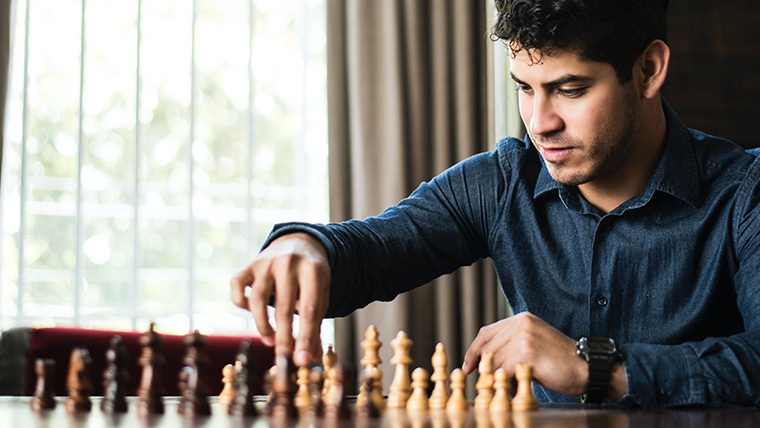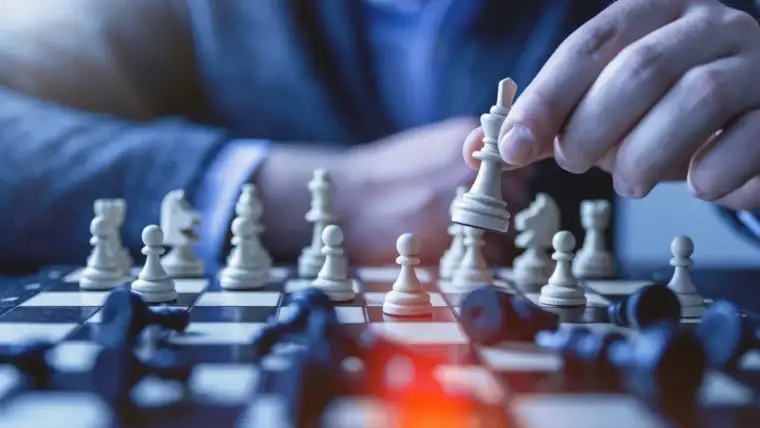Chess is one of the most popular mind games in the world and draws millions of people from all over the globe. The battle strategy game is so rich with ideas, has innumerable permutations and combinations, patterns etc. that even a lifetime is not enough to master the game of chess. Adult chess players come in hot, eager to destroy their opponents online or offline (over the board). We have seen this at local chess clubs and also in the parks. The trash talking, the bets being placed and the all-nighters where chess players meet in billiards halls and play blitz games over innumerable frappes and fast foods. What’s not to love? Alas, stagnation sets in and humans must progress or be left behind.
What is often observed is that upto novice level, chess players repeat the same openings and ideas until they hit a wall. Sure, you can crush an unsuspecting or unprepared opponent with an opening that you know better but what do you do when an equally prepared opponent outfoxes you because they have a better understanding of the overall game of chess and are not just “booked” up?! Many chess players get discouraged at this point and seek answers. Some are stubborn enough to repeat the same ideas and openings hoping for a different result however, we could call that “insanity” right?
How does one get out of the monotony of repetition of ideas owing to familiarity? A simple answer is learn more ideas! I will offer 3 tips that are bound to break the barriers of chess improvement and take you to an elevated level and ecstasy. Yes, ecstasy can be used in the context of a chess game. There is not bigger high for a chess afficionado than to win a game and crush their opponent’s ego with a swashbuckling sacrifice brought about by a strategically well played middle game.
Tip # 1
Analysis: Analyzing your chess games with a computer are commonplace and very effective. Computers are unforgiving and will point out all your mistakes. You can glean these with the evaluation that the various engines provide. Analyzing your games with a human being, especially a stronger player than you are, will expose you to different ideas, psychology of the chess player, human errors, and highlight your bad habits over the board. At ChessED, we believe that in life and in chess, players are either right brain or left brain dominant and don’t even realize it. This curtails their improvement, and it is is extremely important to “switch sides” in critical moments during the duel. Pragmatism should complement fantasy and vice-versa for a beautiful outcome. A chess coach can help you with this, especially one who has done it themselves. At ChessED we have walked the walk!
Tip # 2
Solve: In chess openings can be memorized and “parroted” out upto a certain level. But, like I said earlier what happened if you meet a better prepared opponent? You need to know how to conduct the game once your pieces have been strategically developed and your king is safe. Solving middle game and end game studies – beyond 3-4 move studies will immensely enhance your understanding of chess.
- What to do with your pieces?
- Are they communicating with your forces, are they directed at the right enemy targets?
- Are any tactical patterns looming and can you manufacture a tactic?
- Are you playing for an attack or are you playing for control over key squares?
- What pieces to exchange and why?
At ChessED we have different courses to prepare you with answers to the above questions.
Tip # 3
Sit on your hands: Yes, when you see a “good” move the tendency is to play it immediately without taking into account your opponent’s best reply. We tell our “kid” students to “sit on your hands” so they won’t reply with an immediate move that may be a mistake. Fight the temptation to make a move- “When you see a good move, look for a better one”. Chess teaches patience and the mark of a strong player is that they digest the position and don’t reply immediately to their opponent’s move, generally unless they see a forcing sequence and have calculated all the variations.
ChessED is an online chess academy that offers individual and group chess lessons via video conferencing and chess software. We have prepared curriculums to prepare you for all aspects of the game of chess. Do write to us at info@chessed.academy



